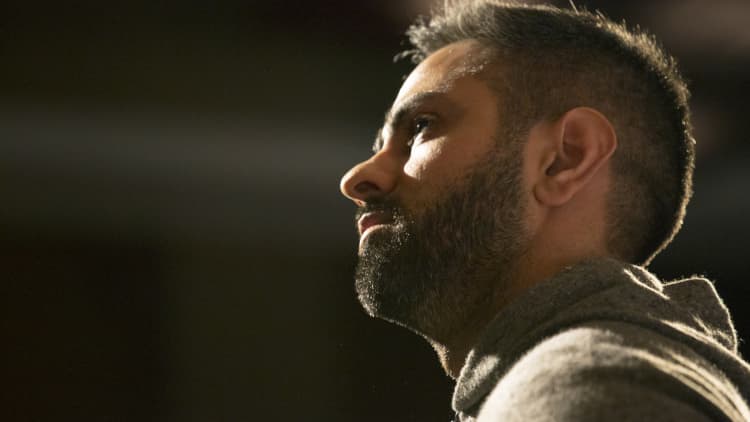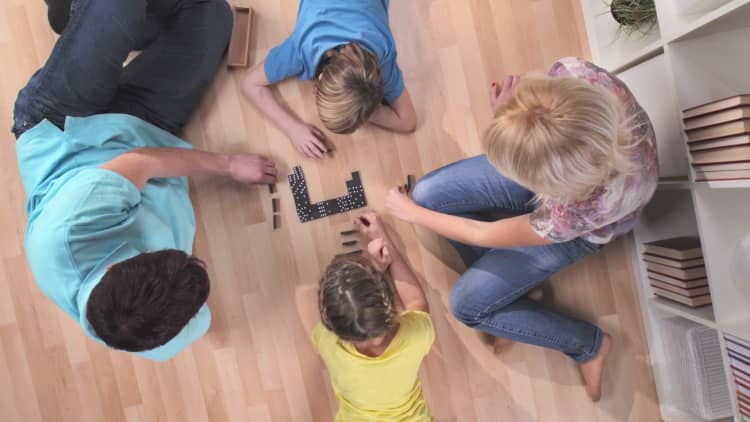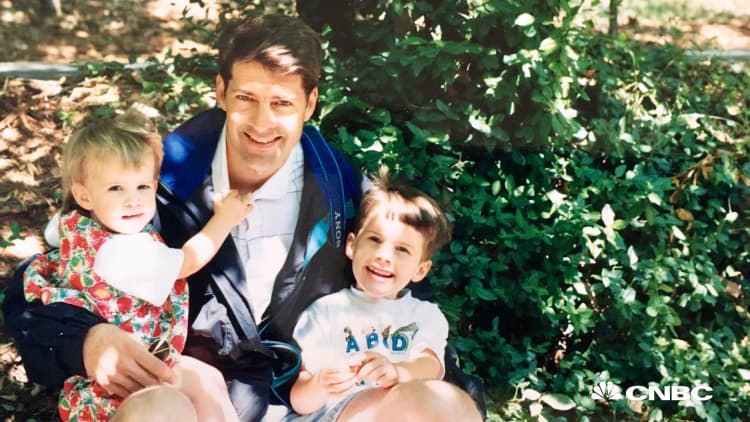I have worked for a man who owns his-and-her 747s. Another former employer has a 10,000-acre hobby farm he visits about 10 times a year. And, in a total coincidence, I have been hired by two people who each happen to own one of the 25 largest yachts in the world, boats that come with 12 times the living space of my house and are equipped not only with fully stocked wine cellars but also with helicopters and submarines.
So I know what wealthy is. And I know my wife and I are not.
However, my wife's consulting business is recognized nationally in her part of the universe, and every 10 years or so I write a book that sells a few copies, so we are doing O.K. No, we haven't ever chartered a private jet, ordered a $1,000 bottle of wine at a restaurant or bought a $10,000 watch. But we did manage (barely) to put our four children through the (very expensive) colleges of their choice.
After we had paid boatloads of tuition for 11 years, a funny thing happened: When the baby — all 6-feet-2-inches and 175 pounds of him — graduated, we relearned the meaning of discretionary income.
More from The New York Times:
How the wealthy talk to their children about money
Giving like a Rockefeller, even if you're not super-rich
Reopening the bank of mom and dad, to help adult children
We now have a little bit of extra income. And because we are hopelessly middle class, there isn't anything outlandishly expensive that we want to spend it on. For example, we would feel uncomfortable taking a three-month vacation, even if my wife could get away. And we like the cars we have just fine and don't feel compelled to upgrade to something that would cost 80 times more, although Alison does drool every time — twice so far — she sees a McLaren P1 LM on the street (sticker price: $4 million).
So we have made a decision that gets some people to look at us strangely.
We have started to give our children some of our money.
We are not setting up substantial trust funds. Heck, we are not even fully taking advantage of the tax code that says I could give each kid $14,000 a year, and Alison could, too, so that we could end up gifting each of our four children $28,000 a year with no tax consequences to either us or them.
We are not even averaging half of that. But for the last four years, right around the holidays, we have given them checks — along with traditional presents. So far the total allotted in aggregate to the four of them adds up to about three years of higher education at a good private college.

They have each parked the money in low-cost, diversified index funds.
Why would we ever give them our money? A couple of friends asked this question in horror — figuring we could use the funds, or it would be better to wait until after my wife and I die.
My answer is threefold.
They can use the money now
Our oldest child, who recently bought a house in suburban San Francisco, paid more for his home than I did for any of mine. And the mortgage that he and his wife have on their charming (read: small) house could choke a horse, as my mother used to say. Oh, and by the way: They are saving so that the world's cutest and smartest grandchild — now 23 months old — can go to college. Grandchild No. 2 is scheduled to arrive in October.
Child No. 2 and his wife are house hunting. Child No. 3 and her fiancé soon will be. And Child No. 4, the aforementioned rather tall baby, is planning on starting a restaurant. They have legitimate uses for the money — now.
They are going to get the money anyway, in the form of an inheritance
But hopefully that won't be for a while — and as you saw in Point 1, if they had the money today, their lives would be easier.
And finally
Why, as a parent, would you want your children — even if it is on some tiny, tiny, tiny subconscious level — waiting around for you to die, so they can inherit money they could use now?
Our friends listen to all this, and sometimes they have questions like, "Aren't you concerned you are giving them money you may need someday?"
Not really. While neither Ali nor I own a working crystal ball, we have prepared the best we can for the future. We have saved — and continue to save — aggressively for retirement, and we have really good health insurance.
The other common question is whether we're worried about what our kids might do with the money.
That answer is a flat no.
For one thing, it is not all that much. Each of the children makes more — in some cases, a lot more — in a year than they have gotten in total.
For another, they are pretty levelheaded young people. If they are going to make bad choices, they are going to make them no matter when they get the funds. (When we started doing this, the baby was 23.)

While I find my friends' reactions intriguing, I found our children's reactions fascinating — and totally in character for each of them.
Child No. 1, a finance/logistics guy for a San Francisco start-up, cited the longstanding "time value of money" concept, which states that the value of money right now is greater than it will be in the future because of the earning power it has today.
"Oh," he said. "You are giving us part of our inheritance now. Time value of money, and all that. Cool. Your grandson thanks you for helping to pay his college tuition."
Child No. 2, who has always been a bit of hoarder, said "thanks" — and instantly deposited it in his mutual fund.
Child No. 3, who has never cared about money, tried to persuade us to spend it on ourselves. She took the check reluctantly — and with the strong understanding of just how much it is going to cost her and her soon-to-be husband to buy a house in or near Boston.
Child No. 4, the budding restaurateur, said, "Thanks, guys!" and went back to planning his potential menu.
I will not waste a minute worrying about how they are going to spend the money. And I am glad we gave it to them.
This article originally appeared in The New York Times.
Don't miss: Self-made millionaire Eugene Lang set his kids up for success by not leaving them a dime
and
68% of young people expect an inheritance, yet only 40% of their parents will leave one


